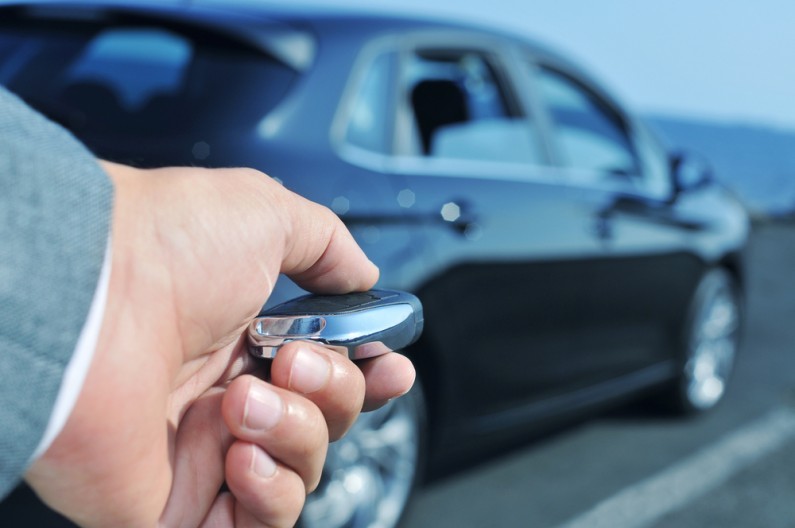Company car tax: is a company car still a tax efficient option?
Company car tax efficiency is at the forefront of many business owners and employees’ minds and, whether you’re thinking of purchasing your first company car or upgrading an old one, it is important to understand the pros and cons of company car tax. It may come as a surprise to a lot of people, but company cars can actually work out very expensive for tax purposes and you (as a business owner) could potentially save money each year by purchasing the car personally and claiming mileage.
There are also significant company car tax changes on the way (see below) which will impact businesses and employers who provide company cars that are made available for employees’ private use and those employees.
- How is company car tax calculated?
- Are company cars still tax efficient for business owners?
- Should I purchase my car through my limited company?
- Is claiming mileage more tax efficient?
These are questions we provide guidance on in this article.
It is important to note that as company cars can be an extremely complicated area for tax purposes. This briefing provides general guidance and we would strongly recommend that you seek professional advice before taking any action.
We have a great deal of experience in this area and would be happy to help. Please get in touch with your usual Hawsons contact or book your free initial meeting here.
What is company car tax?
A car benefit arises when an employer makes a car available to a director or employee for private use.
The amount of company car tax you will pay is dependent on a number of factors, including CO2 emissions, the official list price of the car, what type of fuel is used and your income levels.
The starting point for working out your company car tax is to find out the CO2 emissions of your chosen car. The list price of the car is then multiplied by a percentage that is linked to the CO2 emissions of the vehicle to arrive at the taxable benefit in kind. It should also be noted that if fuel is also made available for private use that a fuel benefit charge is levied. This is based on an amount of £22,200 as multiplied by a percent linked to the cars CO2 emissions. The car and fuel benefit is then taxed at the individual’s marginal tax rate and the company will pay Class 1A National Insurance on the benefits at 13.8%.
Therefore, if you’re considering purchasing a company car, you’ll want to know which makes and models offer the most tax efficient options for you and your business.
2016/17 company car tax rates
As noted above the CO2 emissions of your chosen car are important as different emission level bands are taxed at different percentages of a vehicle’s list price. The table below shows the percentages applicable to each band of CO2 emissions in respect of the 2016/17 tax year. This table is also relevant for fuel benefit charges.
Although the government continues to favour low emission vehicles even some of the lowest CO2 emitting cars have seen the taxable benefit percentage increase in recent years.
CO2 emissions (gm/km)(round down to nearest 5gm/km) |
% of car’s list price taxed |
| 0-50* | 7 |
| 51-75* | 11 |
| 76-94* | 15 |
| 95 | 16 |
| 100 | 17 |
| 105 | 18 |
| 110 | 19 |
| 115 | 20 |
| 120 | 21 |
| 125 | 22 |
| 130 | 23 |
| 135 | 24 |
| 140 | 25 |
| 145 | 26 |
| 150 | 27 |
| 155 | 28 |
| 160 | 29 |
| 165 | 30 |
| 170 | 31 |
| 175 | 32 |
| 180 | 33 |
| 185 | 34 |
| 190 | 35 |
| 195 | 36 |
| 200 and above | 37 |
- For diesel cars add a 3% supplement but maximum still 37%.
- For cars registered before 1 January 1998 the charge is based on engine size.
- The list price includes accessories and is not subject to an upper limit.
- The list price is reduced for capital contributions made by the employee up to £5,000.
- Special rules may apply to cars provided for disabled employees.
*Rounding down to the nearest 5gm/km does not apply.
Company car tax rates to 2019/20 – big increases on the way?
Company car tax levels to 2019/20 were announced in the 2015 Budget, so that the taxable benefit is known prior to acquisition for the life cycle of most company cars, which is typically three or four years.
In summary, car benefit percentages will increase each year by 2% until 2019/20, when they will increase by 3%.
It was also announced in the 2015 Budget that the removal of the 3% diesel supplement which is used to calculate the Benefit in Kind value of a company car, and was proposed to come into force from April 2016, will be deferred to April 2021. This is a u-turn which is perhaps not too surprising given the recent emissions scandals involving diesel engines.
What this means in practice
These planned increases in company car tax may discourage businesses and business owners from retaining the same car, as the below example shows.
If the car was purchased by the employer, say three years earlier, a decision to replace the car with a new car needs to take account of not just the cost of the new car but also the fact that many cars are more efficient (as technology advances) and thus have lower CO2 emissions than a model manufactured three years earlier.
For example, if you purchased a company car (petrol) emitting 130g/km this month and it was yours for the next four years, the percentage of list price on which you pay company car tax rises from 23% to 30% over that four-year period.
Despite the car being four years older, this example would see a significant tax increase. These announcements, therefore, require careful consideration in terms of vehicle choice and purchasing structure if you are buying a new company car.
A complete overhaul of the system in 2020?
There are also suggestions that the government could completely overhaul how the Benefit in Kind for company cars is calculated in 2020. The current rules have been in effect for over ten years now and significant change could be on the way.
We will keep you updated on any developments.
Company car or claim mileage – which is more tax efficient?
For business owners
One of the most common questions accountants are typically asked by small business owners is whether it is beneficial (from a tax perspective) to purchase or lease a car through the business, rather than personally.
The answer now very much depends on individual details and circumstances including the type of vehicle purchased, its list price, its CO2 emissions (as the above table has shown), whether the vehicle is to be purchased or leased and whether or not the business is incorporated.
What happens if my business or company acquires the car?
If the business is operated via a limited company then a benefit in kind will arise where the car is purchased or leased by the company and made available to a director or employee for private use. If the business is operated as a sole trade or partnership no benefit in kind will arise where the car is made available to the business owner (e.g. a sole trader or partner). However, there will be a benefit in kind if the car is made available to an employee of the sole trade or partnership.
You then need to consider the tax reliefs which may be available in respect of the vehicle.
If you purchase the car through the business then capital allowances will be due and these can be deducted in arriving at taxable profits. The level of capital allowances is also linked to the CO2 emissions of the car as follows:
- Emisssions not exceeding 75g/km = 100 % first year allowance
- Emissions not exceeding 130g/km = 18% writing down allowance per annum
- Emissions exceeding 130g/km = 8% writing down allowance per annum
If the business leases the car then the lease rentals will be deductible in arriving at the taxable profit or loss of the business subject to a 15% restriction where CO2 emissions exceed 130 g/km.
In addition, the business will be able to claim a deduction for the running costs to include insurance and repairs. However, if the business is a sole trade or partnership then a private use restriction may be required when calculating taxable profits which will reduce the amount of relief due.
It is important to take any reliefs into account in calculating the overall costs of having a company car.
What about acquiring the car personally and charging the business/company for the business mileage?
Where the business is being operated via a limited company structure and the car is acquired personally then the owner can charge a mileage allowance to the company. As its stands the company can reimburse the individual the following amounts in respect of business mileage without any tax or NI consequences:
- On the first 10,000 business miles = 45p per mile
- Over 10,000 business miles = 25p per mile
Sole traders and partners can also use the mileage allowance in certain circumstances. The mileage rate covers the costs of buying, running and maintaining the vehicle, such as fuel, oil, servicing, repairs, insurance, vehicle excise duty and MOT. The rate also covers depreciation of the vehicle. Therefore, the actual costs and capital allowances cannot be claimed when the mileage allowance is used.
After taking into account the above tax free mileage allowances it may work out more tax efficient for the individual to acquire or lease their own vehicle and charge mileage to the company or business. However, it is necessary to prepare calculations of both routes in order to make that decision.
For employees
For employees, there may be the opportunity to opt for a car allowance rather than a company car. The car allowance would be subject to income tax and national insurance as it is essentially additional salary.
The employee would then be able to claim a mileage allowance as set out above in respect of business mileage. This isn’t always the best option but, for some, could lead to significant savings.
For more information on this area please do get in touch.
For more information and advice
The forthcoming company car tax changes mean that businesses, employers and employees need to carefully consider the right choice now or could face significant tax increases over the typical four-year life of a vehicle.
We recommend that you seek professional advice and talk to an adviser about your options from tax efficiency point of view. This is an area we have a great deal of experience in and would be happy to help.
More from our tax experts
You can find all of our latest tax articles and tax resources here.
If you are looking for advice in a particular area, please get in touch with your usual Hawsons contact.
Alternatively, we offer all new clients a free initial meeting to have a discussion about their own personal circumstances – find out more or book your free initial meeting here. We have offices in Sheffield, Doncaster and Northampton.
Aaron Hemmington is a Tax Manager based in the Northampton office and specialises in providing tax planning, advisory and compliance services to owner managed businesses across a variety of sectors. For more details and advice, please contact Aaron on aaronhemmington@hawsons.com or 01604 645 600. You can also follow Aaron on LinkedIn. [/author_info]


